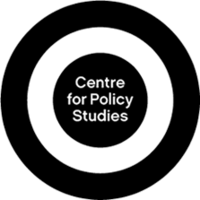
Margaret Hilda Thatcher, Baroness Thatcher, was a British stateswoman and Conservative politician who served as Prime Minister of the United Kingdom from 1979 to 1990 and Leader of the Conservative Party from 1975 to 1990. She was the longest-serving British prime minister of the 20th century and the first woman to hold the position. As prime minister, she implemented economic policies known as Thatcherism. A Soviet journalist dubbed her the "Iron Lady", a nickname that became associated with her uncompromising politics and leadership style.

Thatcherism is a form of British conservative ideology named after Conservative Party leader Margaret Thatcher that relates to not just her political platform and particular policies but also her personal character and style of management while in office. Proponents of Thatcherism are referred to as Thatcherites. The term has been used to describe the principles of the British government under Thatcher from the 1979 general election to her resignation in 1990, but it also receives use in describing administrative efforts continuing into the Conservative governments under John Major and David Cameron throughout the 1990s and 2010s. In international terms, Thatcherites have been described as a part of the general socio-economic movement known as neoliberalism, with different countries besides the United Kingdom sharing similar policies around expansionary capitalism.
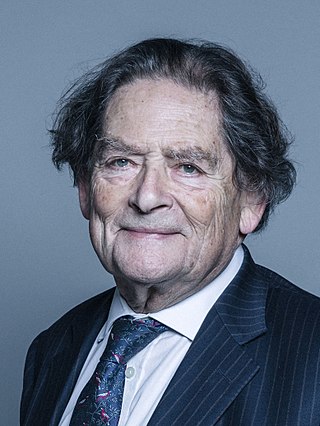
Nigel Lawson, Baron Lawson of Blaby, was a British politician and journalist. A member of the Conservative Party, he served as Member of Parliament for Blaby from 1974 to 1992, and served in Margaret Thatcher's Cabinet from 1981 to 1989. Prior to entering the Cabinet, he served as the Financial Secretary to the Treasury from May 1979 until his promotion to Secretary of State for Energy. He was appointed Chancellor of the Exchequer in June 1983 and served until his resignation in October 1989. In both Cabinet posts, Lawson was a key proponent of Thatcher's policies of privatisation of several key industries.
New Right is a term for various right-wing political groups or policies in different countries during different periods. One prominent usage was to describe the emergence of certain Eastern European parties after the collapse of the Soviet Union. In the United States, the Second New Right campaigned against abortion, homosexuality, the Equal Rights Amendment (ERA), the Panama Canal Treaty, affirmative action, and most forms of taxation.
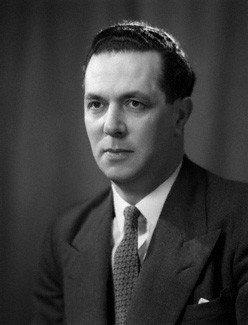
Keith Sinjohn Joseph, Baron Joseph,, known as Sir Keith Joseph, 2nd Baronet for most of his political life, was a British politician. A member of the Conservative Party, he served as a minister under four prime ministers: Harold Macmillan, Alec Douglas-Home, Edward Heath and Margaret Thatcher. He was a key influence in the creation of what came to be known as "Thatcherism".

The Institute for Public Policy Research (IPPR) is a progressive think tank based in London. It was founded in 1988 by Lord Hollick and Lord Eatwell, and is an independent registered charity. The think tank aims to maintain the momentum of progressive thought in the United Kingdom through well-researched and clearly argued policy analysis, reports, and publications; as well as a high media profile.
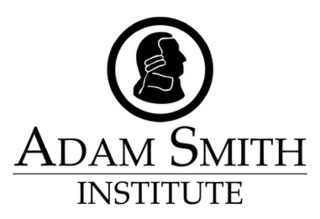
The Adam Smith Institute (ASI) is a UK-based neoliberal think tank and lobbying group, named after Adam Smith, a Scottish moral philosopher and classical economist. The Institute advocates free market and classical liberal ideas, primarily via the formation of policy options with regard to public choice theory, which political decision makers seek to develop upon. ASI President Madsen Pirie has sought to describe the activity of the organisation as "[w]e propose things which people regard as being on the edge of lunacy. The next thing you know, they're on the edge of policy".
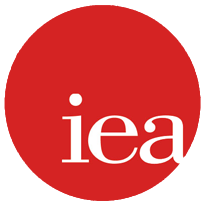
The Institute of Economic Affairs (IEA) is a right-wing, free market think tank registered as a UK charity. Associated with the New Right, the IEA describes itself as an "educational research institute" and says that it seeks to "further the dissemination of free-market thinking" by "analysing and expounding the role of markets in solving economic and social problems". The IEA is the oldest free market think-tank in the UK and was established to promote free-market responses to economic challenges by targeting influential academics and journalists, as well as students, in order to propagate these ideas widely. Adopting as its credo FA Hayek's view that "yesterday's dissent becomes today's consensus," the IEA says that it prioritises producing work with a focus on economic insights over partisan politics.
The Conservative Research Department (CRD) is part of the central organisation of the Conservative Party in the United Kingdom. It operates alongside other departments of Conservative Campaign Headquarters in Westminster.

The Bow Group is a UK-based think tank promoting conservative opinion. Founded in 1951, it is the oldest group of its kind, counting many senior Conservative Party MPs and peers among its members. It represents a forum for political debate with its varied programme of events and official journal.
Centre-right politics lean to the right of the political spectrum, but are closer to the centre. Parties of the centre-right generally support liberal democracy, capitalism, the market economy, private property rights, and a modest welfare state. They support conservatism and economic liberalism and oppose socialism and communism.
The Anglo-Saxon model is a regulated market-based economic model that emerged in the 1970s based on the Chicago school of economics, spearheaded in the 1980s in the United States by the economics of then President Ronald Reagan, and reinforced in the United Kingdom by then Prime Minister Margaret Thatcher. However, its origins are said to date to the 18th century in the United Kingdom and the ideas of the classical economist Adam Smith.

Anthony Patrick Leslie Minford is a British macroeconomist who is professor of applied economics at Cardiff Business School, Cardiff University, a position he has held since 1997. He was Edward Gonner Professor of Applied Economics at the University of Liverpool from 1976 to 1997. In 2016, Minford was a notable member of the Economists for Brexit group which, in opposition to the consensus view of economists, advocated the UK leaving the European Union and claimed large economic benefits, which did not occur.
Civitas: The Institute for the Study of Civil Society is a British think tank working on issues related to democracy and social policy. It was founded by David George Green.
Nigel Vinson, Baron Vinson, LVO, is a British entrepreneur, inventor, philanthropist and Conservative former member of the House of Lords.

Margaret Thatcher's term as the Prime Minister of the United Kingdom began on 4 May 1979 when she accepted an invitation of Queen Elizabeth II to form a government, and ended on 28 November 1990 upon her resignation. She was elected to the position in 1979, having led the Conservative Party since 1975, and won landslide re-elections in 1983 and 1987. She gained intense media attention as Britain's first female prime minister, and was the longest-serving British prime minister of the 20th century. Her premiership ended when she withdrew from the 1990 Conservative leadership election. While serving as prime minister, Thatcher also served as the First Lord of the Treasury, the Minister for the Civil Service and the Leader of the Conservative Party.
Tory! Tory! Tory! is a 2006 BBC Television documentary series on the history of the people and ideas that formed Thatcherism told through the eyes of those on the New Right. It was nominated for the best Historical Documentary at the Grierson Awards in 2006. The name is based on the 1970 Pearl Harbor war film Tora! Tora! Tora!
Tom Clougherty is a British academic and Executive Director and Ralph Harris Fellow at the Institute of Economic Affairs, a free market think tank based in London. He was previously the Head of Tax at the Centre for Policy Studies and editorial director of the Center for Monetary and Financial Alternatives at the Cato Institute. He was also managing editor of the Cato Journal. Clougherty previously served as executive director of the Adam Smith Institute, a free market think tank based in London. Clougherty holds a B.A. in law from the University of Cambridge.

Masters of the Universe: Hayek, Friedman, and the Birth of Neoliberal Politics is a 2012 book by barrister Daniel Stedman Jones, in which the author traces the intellectual development and political rise of neoliberalism in the United States and the United Kingdom. Originally a PhD thesis, the author adapted it into a book.

The 1988 United Kingdom budget was delivered by Nigel Lawson, the Chancellor of the Exchequer, to the House of Commons on 15 March 1988. It was the fifth budget to be delivered by Lawson during his tenure as Chancellor, and marked major changes to taxation, with reductions in income tax and changes to inheritance tax rules, as well as changes to mortgage interest relief that prevented homebuyers from being able to pool mortgage allowances. The changes announced to mortgage relief ultimately helped to further fuel an ongoing property boom which led to a rise in inflation and an increase in interest rates. Due to frequent disruptions during the Chancellor's speech, Deputy Speaker Harold Walker was required to suspend proceedings in what was described as an outbreak of "grave disorder".
